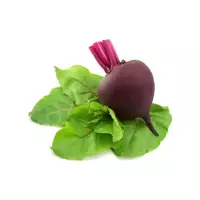Beet

Beet cultivation began as early as the second millennium BC. Regions of its original distribution are called Babylon, Iran, Armenia and Assyria. It was used mainly for medicinal purposes.
The modern name of beets is explained in different ways, but is invariably associated with curiosities arising from language barriers. Some scholars say that the Greek word "sphekeli" has become "beet, " while others claim that "beet" comes from the Babylonian "silkva. " Be that as it may at present, beets are widespread in many countries of the world and in Russia occupies an honorable place among tasty and healthy vegetables.
Back in ancient times, various varieties of beets were bred: canteens, sugar and feed.
Beet benefits
Neither folk nor official medicine doubts the benefits of beets. Indeed, it contains a rich complex of vitamins necessary for humans, in particular, B vitamins, vitamin E. In addition, beets include folic, nicotinic and pantothenic acids. Beets satisfy the body's need for phosphorus, calcium, potassium, sodium and chlorine. These trace elements are simply necessary for a person constantly facing stressful situations. Manganese, zinc and copper, also represented in beet composition, improve hematopoietic processes, and iodine helps in the prevention and treatment of atherosclerosis.
As a rule, beet root is eaten. And in vain, because the leaves contain more protein than the root crop, almost three times. Beetroot leaves are good in botvinya and in various vitamin salads. The beneficial properties of beets are also manifested in the fact that its fruits and leaves contain a unique substance betaine, not found in other vegetables. It contributes to the optimal absorption of proteins, improves liver function.
Beet has healing, anti-sclerotic and anti-allergic action. The presence of fiber and pectin in the composition of beets contributes to the better functioning of the gastrointestinal tract. Beets are an excellent adsorbent, with its help harmful slags and toxins, heavy and radioactive metal salts are removed from the body, which interfere with the normal functioning of most organs.
Beetroot juice is no less, and perhaps more useful. It has been proven to have a choleretic effect. In folk medicine, beetroot juice treats low blood, headache and runny nose. The benefits of beetroot are hard to overstate for people of any age. With its help, the prevention of strokes and oncological diseases is carried out.
Beetroot is extremely effective and useful for those who want to get rid of excess weight. The calorie content of beets is 42 kcal. 100 gr, with mild laxative, diuretic and anti-inflammatory effects. Many diets include beet dishes and guarantee significant weight loss while maintaining health and wellness.
Beet harm
The harm of beetroot can manifest itself when it is consumed excessively. Beets can increase acidity, so it is worth avoiding it with gastritis. A significant amount of sugar in the composition of beets makes it harmful in diabetes mellitus. People suffering from urolithiasis should also refrain from eating beets, since this vegetable includes oxalic acid, which negatively affects the weak urinary system.
beets 42 kCal
The energy value of beets (Ratio of proteins, fats, carbohydrates - ju):
Proteins: 1.5 g (~ 6 kCal)
Fats: 0.1 g (~ 1 kCal)
Carbohydrates: 8.8 g (~ 35 kCal)
Energy ratio (bj | y): 14% | 2% | 84%
 Español
Español Français
Français Português
Português Русский
Русский 简体中文
简体中文 繁體中文
繁體中文 日本語
日本語 한국어
한국어 العربية
العربية Türkçe
Türkçe Қазақ
Қазақ Deutsch
Deutsch Italiano
Italiano Українська
Українська
